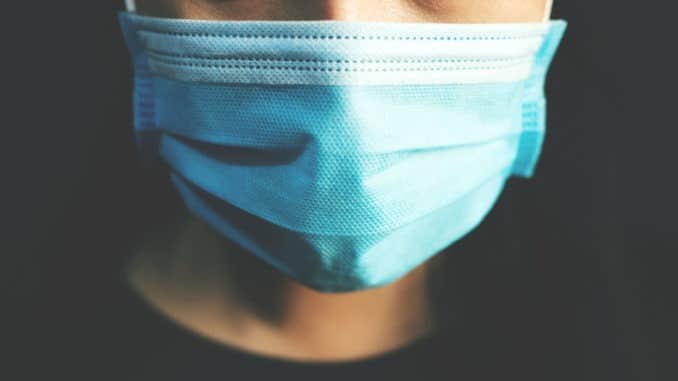
As reported by BBC news, the quality of face masks healthcare workers wear makes a huge difference to their risk of coronavirus infection, Cambridge University Hospitals NHS Foundation Trust research has found
Wearing a high grade mask known as an FFP3 can provide up to 100% protection. By contrast, there is a far greater chance of staff wearing standard issue surgical masks catching the virus. Professional bodies have long campaigned for staff to be given better personal protective equipment.
The data was gathered during a programme of regular testing for COVID at the trust. The results are published in a pre-print paper that has not been peer-reviewed. For most of last year, the hospital followed national guidance which specifies that healthcare workers should wear surgical masks, except in a few limited situations.
Though fluid resistant, these masks are relatively flimsy and loose-fitting and are not meant to screen out infectious aerosols – tiny virus particles that can linger in the air and are now widely accepted as a source of coronavirus infection.
The study found that staff caring for COVID patients on “red” wards faced a risk that was up to 47 times higher than those on “green” or non-COVID wards. Lead researcher Dr Mark Ferris, a specialist in occupational health at the hospital, said staff were getting COVID despite doing everything they were asked to in terms of infection control. So as the second wave of the pandemic started to hit last December, managers in Cambridge made a local decision to upgrade the protection on red wards.
“The only thing left to try that could make a difference was FFP3 respirators, and they did,” Dr Ferris said.
FFP3 masks have a close fit and are specifically designed to filter out aerosols.
In the weeks following this move, the rate of infections among healthcare workers on red wards dropped spectacularly, quickly falling to the level experienced by staff on green wards where there were no COVID patients.
The study concludes that “cases attributed to ward-based exposure fell significantly, with FFP3 respirators providing 31-100% protection (and most likely 100%) against infection from patients with COVID-19”.
Any remaining cases were likely to be caused by spread in the community, rather than in the hospital. The paper says fluid-resistant surgical masks were “insufficient” to protect healthcare workers.
Dr Mike Weekes, of Cambridge University NHS Hospitals Foundation Trust, who also worked on the study, said the work gives “some real world evidence that FFP3 masks are actually effective and more effective than the surgical masks”.
He added: “Clearly, it’s a relatively small study in one trust and so we need to see these findings replicated elsewhere.
“But given the difference in the results that we’ve seen, as a sort of precautionary principle effect, what we should be thinking about is changing to use FFP3 masks for anyone caring for a patient with coronavirus.”
The Cambridge trust is among 17 across the UK known to have decided to upgrade PPE regardless of national policy. The call for FFP3 masks to be issued more widely is in line with a long-standing demand by the British Medical Association, the Royal College of Nursing (RCN) and many other professional bodies.
They have repeatedly appealed for higher standards of protection to face the threat of airborne spread of the disease, most recently in a high-level meeting with health officials earlier this month.
In an open letter to the new health secretary Sajid Javid, the Fresh Air NHS group of consultants and doctors says the new study provides yet more evidence of why the policy needs to change.
“This has important implications for healthcare worker protection as the UK copes with what is hopefully an ‘exit wave’, as well as trying to reduce the massive backlog of other work whilst coping with inevitable staff sickness and isolation,” the group wrote.
It says supply chains have now been largely restored after the shortages of the early days of the pandemic, and that although FFP3 masks are less comfortable than surgical ones, surveys show staff generally prefer a higher level of protection.
Rose Gallagher, the RCN’s lead for infection prevention and control, also welcomed the research, telling the BBC: “This important study adds even further weight to the RCN’s continuing call for nursing staff to be better protected from Covid-19 and given routine access to the highest levels of respiratory protective equipment whenever they need it.
“We are still seeing cases of COVID-19, even from some who have been vaccinated, and it is vital staff are fully protected and there are no attempts to restrict or ease off on measures to further reduce the risk of infection.”
A Department of Health and Social Care spokesperson said guidance on PPE standards was regularly updated to reflect the latest science.
“The safety of the NHS and social care staff has always been our top priority and we continue to work round the clock to deliver PPE to protect those on the frontline.
“Emerging evidence and data are continually monitored and reviewed and guidance will be amended accordingly if appropriate.”


Be the first to comment